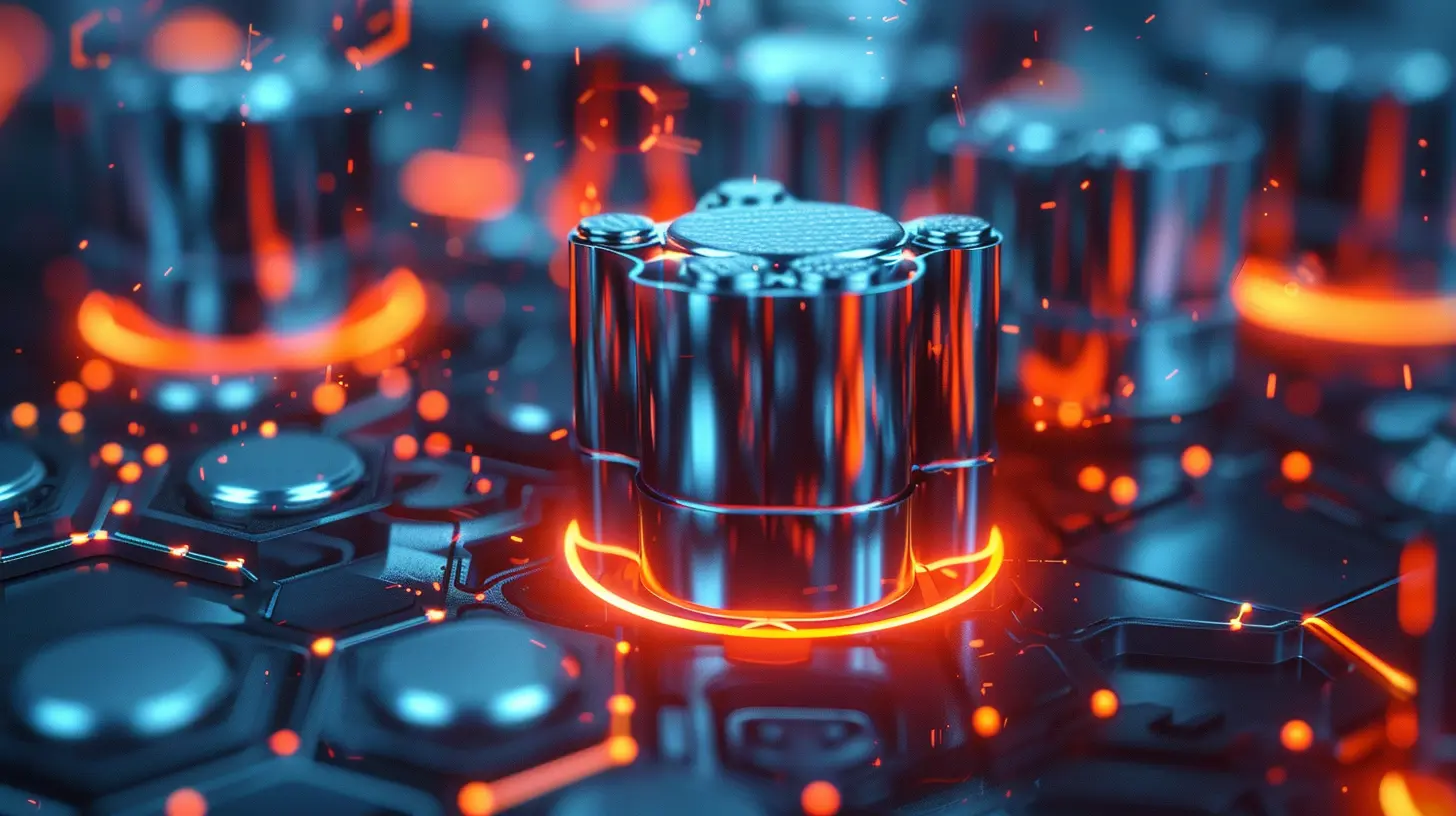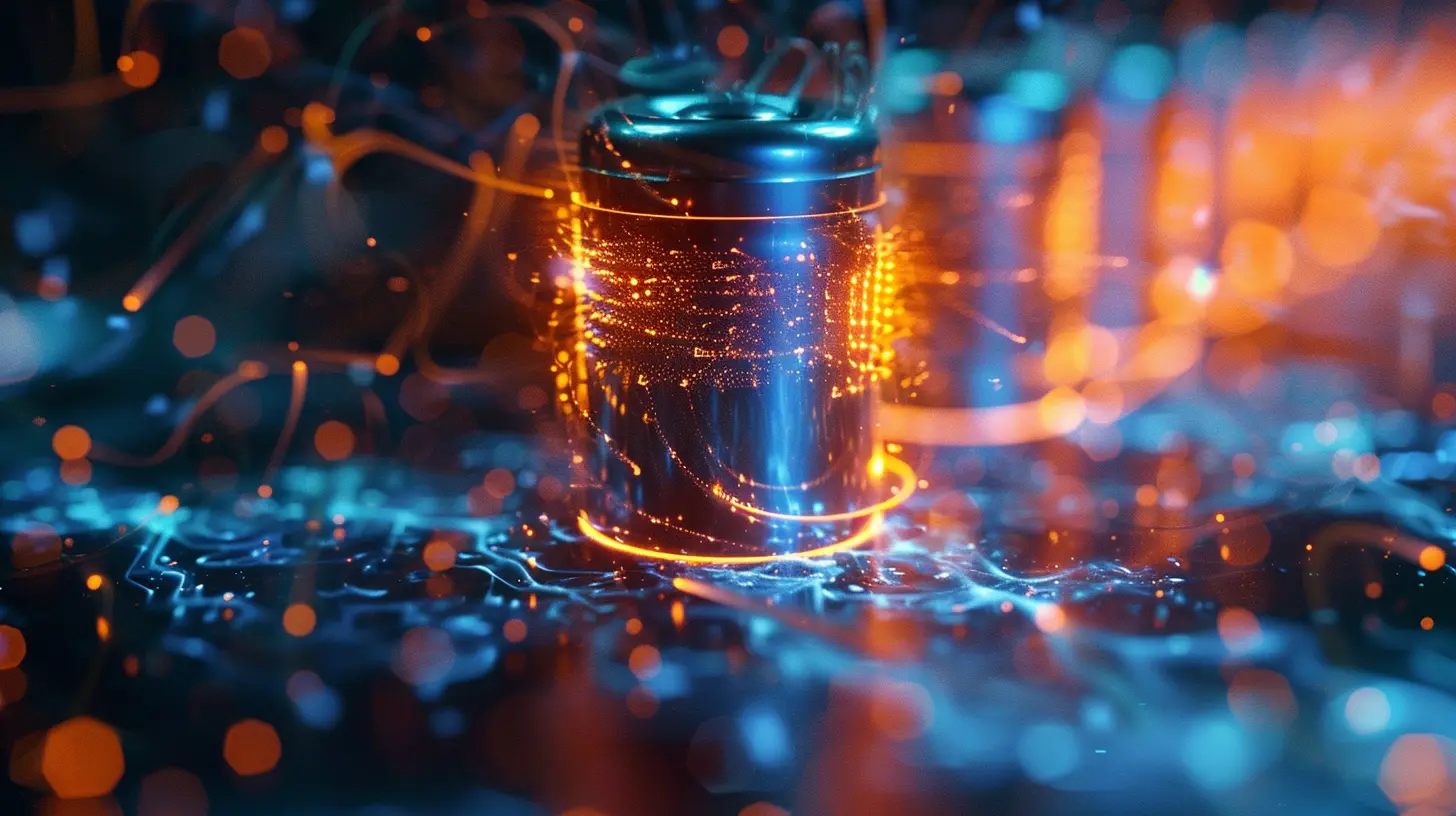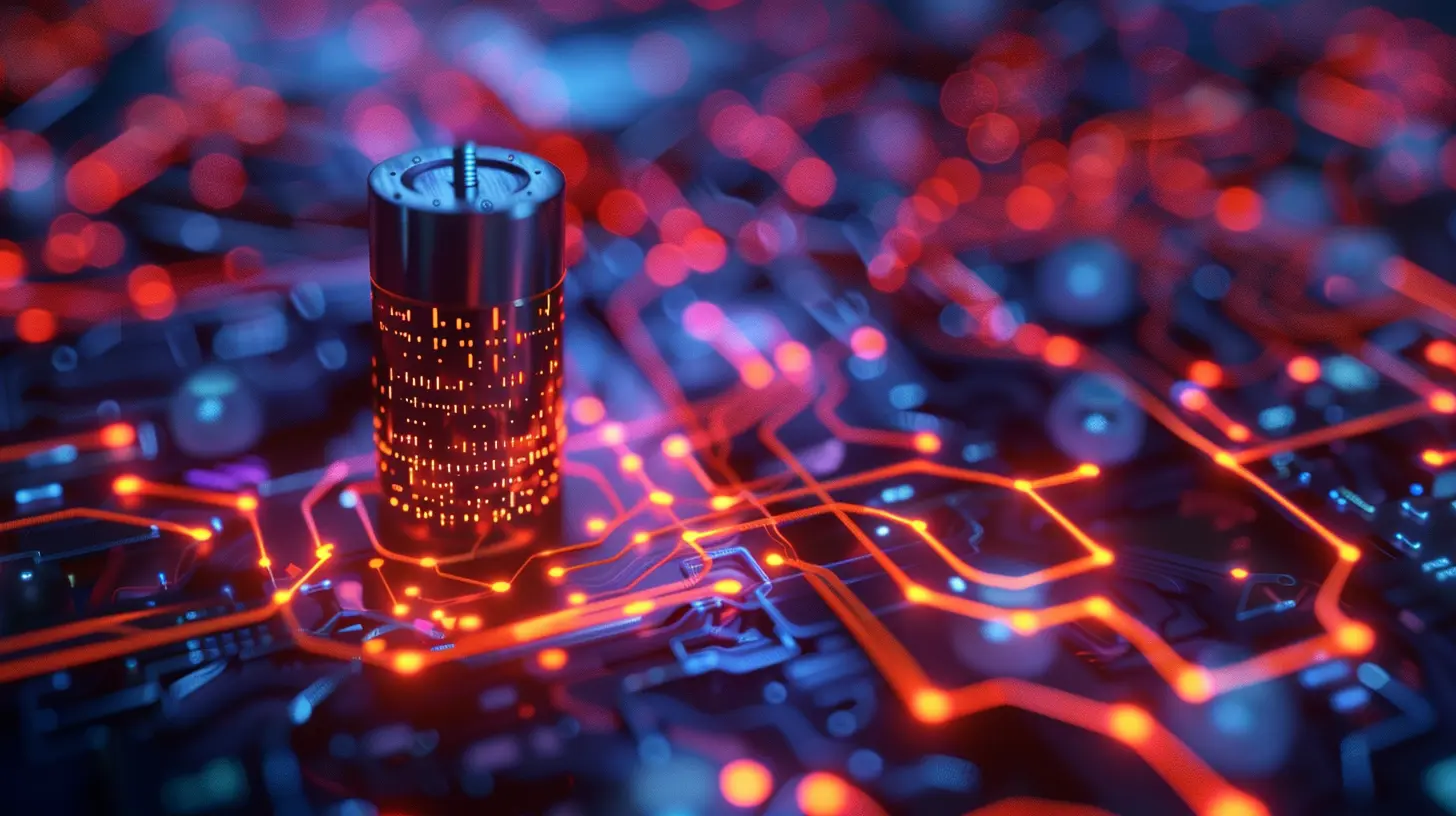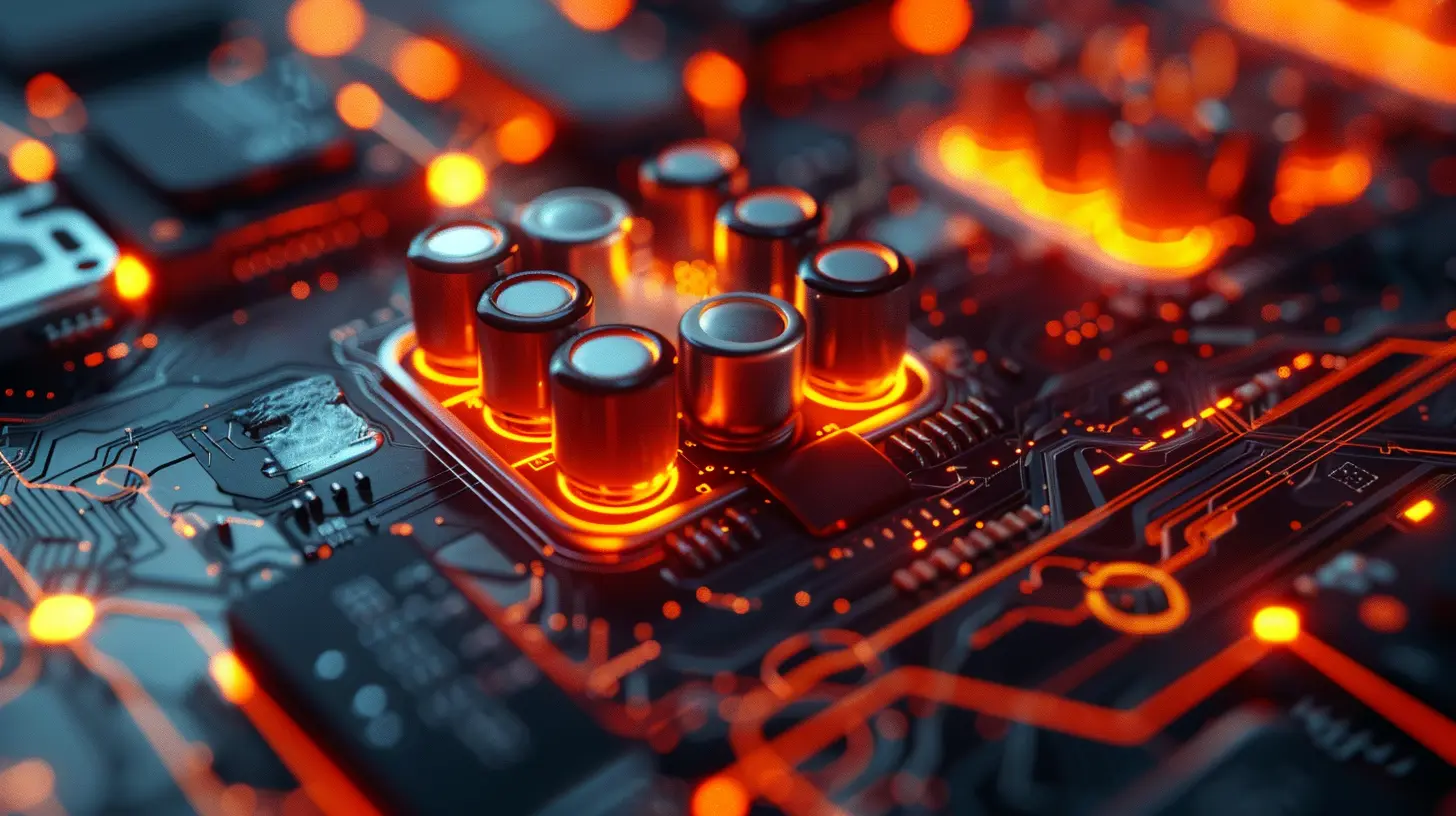How Graphene Batteries Could Revolutionize Energy Storage
14 July 2025
You’ve probably heard about lithium-ion batteries — they're everywhere. In your phone, laptop, electric car — they’re the current kings of energy storage. But here’s the catch: they’ve got limitations. They degrade over time, charge slow, and sometimes, they even catch fire. Now imagine a battery that charges in a few minutes, lasts decades, and doesn’t go up in flames. Sounds like sci-fi, right? Enter graphene batteries — the sleek, superpowered next-gen energy storage solutions that could flip the battery game on its head.

What Is Graphene, Anyway?
Alright, before we dive in, let’s break down this magical-sounding material — graphene.Graphene is a single layer of carbon atoms arranged in a honeycomb lattice. It's incredibly thin (one atom thick), light, and stronger than steel. Oh, and did we mention it’s one of the best conductors of electricity and heat ever discovered? Basically, it's like carbon on steroids.
Now, take this superhero material and use it in batteries — that’s where the magic starts.

The Problem With Traditional Batteries
Before we get all giddy about graphene, let’s understand why we need something better in the first place.1. Slow Charging
Ever waited patiently for your phone to reach 100%? Yeah, it sucks. Charging times for lithium-ion batteries can range from 30 minutes to several hours, depending on the size and the charger’s capacity.2. Limited Lifespan
Each time you charge and discharge a battery, its ability to hold power drops just a little. Eventually, you’re stuck with a battery that dies after two hours of YouTube.3. Safety Issues
Overheating, swelling, and even explosions—remember the infamous Galaxy Note 7 fiasco? That’s all thanks to certain flaws in lithium-ion technology.4. Environmental Concerns
Mining lithium and other rare earth elements isn’t exactly eco-friendly. Plus, these batteries are tough to recycle.Clearly, we need an upgrade.

How Graphene Batteries Work
Alright, here’s where it gets geeky — but stick with me.Traditional lithium-ion batteries work by moving lithium ions between positive and negative electrodes. The problem? These materials don’t handle electrons and heat like champs. Graphene changes that.
In graphene batteries, graphene acts as a super conductor for both electricity and heat. Depending on the design, it can be used as an additive to improve traditional batteries or be the main material in pure graphene supercapacitors.
Think of it like swapping sluggish city traffic for a high-speed bullet train — it’s just ridiculously more efficient.

Graphene vs. Lithium-Ion: What’s The Big Deal?
| Feature | Lithium-Ion | Graphene Batteries ||---------------------------|-------------------------|---------------------------|
| Charging Time | 1–3 hours | Under 15 minutes |
| Energy Density | 150–250 Wh/kg | Up to 1,000 Wh/kg |
| Lifespan | 500–1,000 charge cycles | 5,000+ charge cycles |
| Heat Dissipation | Poor | Excellent |
| Environmental Impact | High | Lower (less toxic waste) |
| Safety | Risk of explosion | Much safer |
See the difference? Graphene practically wins every round.
Real-World Applications That Could Change Everything
1. Electric Vehicles (EVs)
One of the biggest complaints about EVs? Long charging times and limited range.With graphene batteries, imagine charging your Tesla in the time it takes to eat a burger. Not only that, but range anxiety could become ancient history thanks to their higher energy density. Plus, they’d weigh less, making cars more efficient overall.
2. Smartphones and Gadgets
Sick of carrying a power bank around? Graphene batteries could juice up your phone in a couple of minutes and last all day — even with binge-watching sessions.3. Renewable Energy Systems
Storing solar or wind energy has always been a puzzle. Traditional batteries wear out too fast for long-term use in power grids.Graphene batteries, with their long lifespan and high efficiency, could solve this. They’d store energy from the sun like a champ and feed it back to the grid when needed, making renewable energy way more practical.
4. Aerospace and Military
Space agencies and defense systems need compact, powerful, and reliable energy sources. Graphene ticks all those boxes — plus it’s lightweight, which matters A LOT when you’re trying to launch something into orbit.5. Medical Devices
Think pacemakers or hearing aids. These devices need long-lasting, safe batteries. Graphene could pave the way for safer, longer-lasting wearable tech and implants.
Why Aren’t We Using Them Already?
Great question. If they’re so awesome, why aren’t they everywhere?1. Cost
Right now, producing graphene in large quantities is still expensive. We're talking about specialized techniques like chemical vapor deposition and exfoliation, which don't come cheap.2. Scalability
Making a prototype is one thing. Rolling out millions of graphene batteries for mass-market applications is a whole different beast. Manufacturers need to figure out how to scale production without compromising quality.3. Lack of Infrastructure
Battery factories are set up for lithium-ion tech. Switching to graphene means retooling entire production lines — an expensive and time-consuming process.That said, the tech is progressing fast. As production methods get cheaper and more efficient, expect to see graphene batteries popping up in everything from phones to cars.
Companies Leading the Graphene Charge
Some big players and startups alike are racing to bring graphene batteries to the market.- Samsung: They've been experimenting with graphene balls to make lithium batteries better — faster charging and higher capacity.
- Huawei: Working on graphene-enhanced lithium batteries that stay cool and last longer.
- Nanotech Energy: A U.S. startup developing pure graphene batteries for consumer electronics and electric vehicles.
- Skeleton Technologies: These guys are focused on graphene-based supercapacitors, ideal for short bursts of high power.
The race is on, and it’s heating up fast.
What The Future Looks Like
Let’s fast-forward 10 years.You're driving an EV that charges in under 10 minutes. Your phone lasts two days and charges in five minutes. Your home solar setup stores power efficiently throughout the night. All of this, made possible by graphene batteries.
It sounds ambitious, but it’s totally within reach. Researchers are making breakthroughs every year. Governments are investing. Companies are testing prototypes.
Of course, there’s still work to do — mainly cost and scale — but the writing’s on the wall. We're not just talking about better batteries. We're talking about a complete rewrite of how we store and use energy.
The Bottom Line
Graphene batteries aren’t just a small upgrade — they're a total game-changer. With faster charging, longer life, better safety, and eco-friendliness, they promise to outshine lithium-ion in every department.Are they ready to go mainstream? Not quite yet. But the potential? It's sky-high. It’s not a question of “if” graphene batteries will revolutionize energy storage — it’s a matter of “when.”
And when that day comes, you’ll remember reading this and think, “Yep, I saw it coming.
all images in this post were generated using AI tools
Category:
Battery TechnologyAuthor:

John Peterson
Discussion
rate this article
2 comments
Cruz Miller
Graphene batteries promise faster charging, longer life, and enhanced efficiency—transforming the future of energy storage significantly.
November 18, 2025 at 3:51 AM

John Peterson
Thank you! Graphene batteries indeed hold great potential to revolutionize energy storage with their impressive advantages.
Calder Kane
Graphene batteries: the superhero of energy storage. With ultra-fast charging and exceptional longevity, they promise to outshine traditional lithium-ion counterparts. If this revolutionary tech lives up to the hype, we'll be surfing the future on an energy wave that’s not just powerful but also sustainable. Bring on the graphene era!
July 18, 2025 at 4:23 AM

John Peterson
Thank you for your insightful comment! Indeed, graphene batteries hold incredible potential to transform energy storage with their speed and sustainability. Exciting times ahead!


